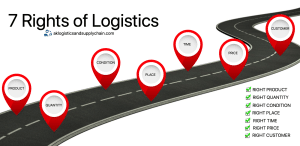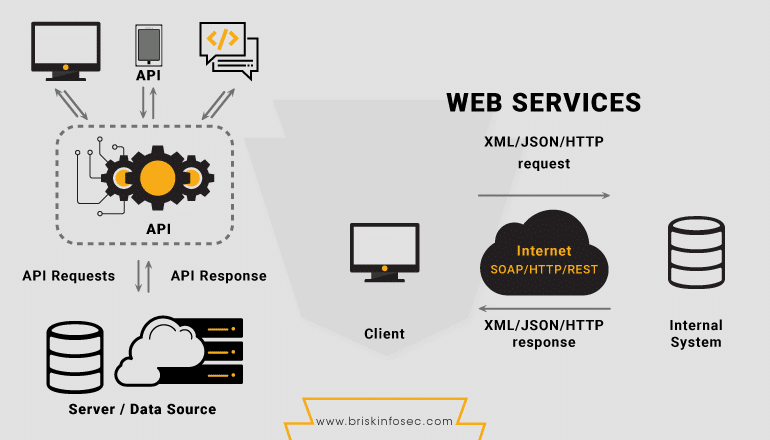The 7 C’s of Logistics: A Comprehensive Guide
Any effective business operation must successfully handle its logistics. It entails coordinating and managing the flow of resources, information, and products from one location to another. Industry professionals have identified a set of guidelines known as the “7 C’s of logistics” in order to guarantee efficient and successful logistics management. These guidelines act as a framework for organizing various supply chain process optimizations. We will go into each of the 7 C’s and consider their importance in contemporary logistics in this essay.
1. Coordination
At the core of effective logistics management is coordination. To maintain efficient flow throughout the supply chain, it entails coordinating a variety of tasks, procedures, and resources. Coordination that works reduces interruptions, improves communication, and boosts productivity. In the world of logistics, collaboration among suppliers, distributors, and transportation partners frequently goes beyond the boundaries of a single firm.
The Role of Technology in Coordination
Modern logistics heavily rely on cutting-edge technology to make collaboration easier. Real-time tracking systems, cloud-based platforms, and collaborative software allow for seamless data exchange and communication amongst stakeholders. These tools give businesses the ability to make wise choices, adapt to shifting conditions, and keep a competitive edge.
2. Communication
Successful logistics management is built on the essential tenet of clear and timely communication. All stakeholders involved in the supply chain are updated about the status, requirements, and issues at every level thanks to effective communication. Delays, mistakes, and disruptions brought on by poor communication can have a negative impact on the entire process.

Real-Time Tracking and Visibility
Real-time tracking and visibility have become logistical objectives with the development of technologies like the Internet of Things (IoT) and RFID. These technologies offer precise and current information on the whereabouts and condition of commodities, enabling stakeholders to be proactive and handle any problems as they develop.
3. Convenience
A component of logistics that puts the wants and desires of the client first is convenience. It entails offering hassle-free interactions, practical delivery alternatives, and individualized services. Customer happiness is a vital distinction in today’s competitive market, and convenience is essential to obtaining it.
Last-Mile Delivery Innovations
The term “last mile” describes the last leg of delivery, when the product arrives at the customer’s door. By speeding up deliveries and providing a variety of delivery options, innovations in this field including drone deliveries and self-driving cars strive to improve convenience.
4. Consistency
Maintaining a predictable and dependable flow of supplies and information along the supply chain is essential for consistency in logistics. Uncertainties and fluctuations might result in inefficiencies and higher expenses. Operations are made to run smoothly and customer expectations are regularly met through consistency. https://cbdtax.com.au/cbd-tax-accountant/

Lean Principles and Just-In-Time (JIT) Inventory
Adopting JIT inventory management and lean principles will help you achieve consistency by cutting down on waste and excess inventory. These methods optimize manufacturing procedures and inventory levels, resulting in more dependable and effective operations.
5. Cost
One of the main objectives of logistics management is cost reduction. Organizations can achieve competitive pricing and greater profitability by cutting costs while maintaining quality and efficiency. In order to gain savings, effective cost management entails assessing every part of the supply chain.
Transportation Optimization
Often, transportation costs make up a sizable amount of logistical expenditures. Transportation costs may be reduced by employing optimization strategies, route planning software, and load consolidation tactics, which will ultimately have an impact on supply chain costs as a whole.
6. Control
For logistics to succeed, multiple supply chain processes must be kept under control. It include keeping an eye on and maintaining inventory levels, production plans, transportation timetables, and other factors. Control makes sure that operations continue to be in line with the overall logistics strategy and corporate goals.

Data-Driven Decision Making
Tools for corporate intelligence and data analytics offer useful insights for deliberating. Key performance indicators (KPIs) and historical data analysis allow firms to better manage their logistical processes and spot areas for development.
7. Compliance
In the context of logistics, compliance is upholding legal and regulatory standards at all times. Fines, legal issues, and reputational harm can occur from breaking laws and regulations. A positive reputation in the market and ethical actions are ensured through proper compliance.
Sustainability and Environmental Regulations
Environmental sustainability has grown significantly in significance in logistics during the past few years. In addition to ensuring compliance, following environmental laws and adopting eco-friendly practices indicates social responsibility and appeals to customers who care about the environment.
The 7 C’s of logistics offer a thorough framework for streamlining supply chain procedures and achieving operational excellence, to sum up. When properly applied, the interconnected principles of coordination, communication, convenience, consistency, cost, control, and compliance help logistics management succeed. Organizations must embrace contemporary technologies, cutting-edge procedures, and a customer-centric mindset in order to succeed in the fast-paced and cutthroat world of logistics. https://diversewebsitedesign.com.au/logistics-website-design/





